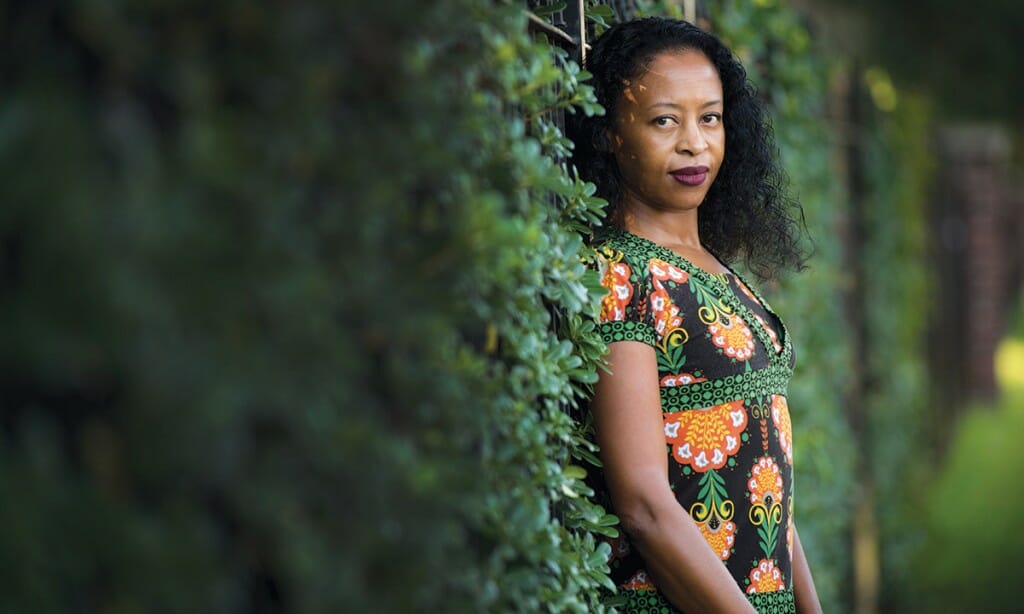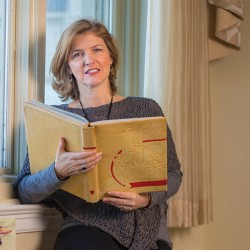Ladee Hubbard
At home in New Orleans, Ladee Hubbard MFA’14 was booked. She had a full-time job as an adjunct lecturer in Africana Studies at Tulane University, a growing family, and a super-powerful calling: to write a novel. Sight unseen, Hubbard moved to Wisconsin with her three children — the youngest then just four months old — for UW–Madison’s creative writing program, where the award-winning author transformed one of her short stories into her debut novel, The Talented Ribkins. Inspired in part by a 1903 essay by W.E.B. DuBois, “The Talented Tenth,” Hubbard’s book tells the story of an African American family with a catalog of superpowers (think fire-breathing, super strength, telekinesis) and a generations-long fight for social justice.
Tell us about the moment [last fall] when you were a guest on Late Night with Seth Meyers, and the crowd applauded your mention of W.E.B. DuBois, the sociologist who wrote “The Talented Tenth.”
A lot of times I have to explain the reference to people. I think he’s not as well-known as I feel he needs to be. I was happy that people were acknowledging his role. He’s a towering figure in American history. He was not just an African American figure, but really, he’s such an important thinker.
How did your University of Wisconsin experience influence this novel?
I knew I needed to go somewhere and focus, because I have a lot of other responsibilities here in New Orleans. I didn’t have much of [the book] written until I got there, beyond the first draft. If you really want to write a book, you’re going to have to make some changes if you want it to actually happen. I just really wanted to have a chance to immerse myself in writing.
What are you hearing from readers of The Talented Ribkins ?
It’s been really gratifying that so many people seem to connect with what I was trying to accomplish with it, because there is a lot going on in the book. It talks about the family dynamic a lot, which I think you can certainly extend to how people interact with each other when they do have a connection. We are one people, in a sense.
What do you hope readers will take away from the novel’s themes of politics, history, freedom, and movement?
I talk about self-love a lot and learning to love yourself — also, in the face of all these obstacles, the value of just trying to do the best that you can with what you’ve been given. What I personally find so heroic about [Johnny the Great, a central character in the book who has a gift for making maps of places he’s never seen] is that he keeps trying. I think that’s really important, trying to find new paths — not getting stuck on one way of seeing things, either, but not being afraid to keep trying to make things better.
Published in the Spring 2018 issue




Comments
No comments posted yet.